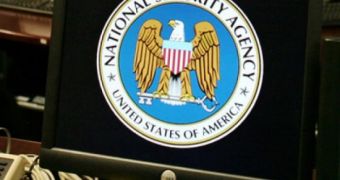Another set of NSA documents got declassified on Monday, among which the secret order that allowed the National Security Agency to access Americans’ email and Internet data.
Among the many files that got unveiled, there’s also one pointing to the fact that one of the judges that are part of the Fisa court was concerned the NSA was continuously and systematically violating the limits set on the data collection program.
The order that allowed the NSA to spy on American citizens was revealed, but it is heavily redacted, as expected. The file shows that the court granted permission for the surveillance partly because of the type of devices that got used for the surveillance.
As mentioned, another court order reveals the judges noticed the NSA was overcollecting data. “The court recognizes that, by concluding that these definitions do not restrict the use of pen registers or trap-and-trace devices to communication facilities associated with individual users, it is finding that these definitions encompass an exceptionally broad form of collection,” wrote Kollar-Kotelly, former presiding judge of the Fisa court, in an opinion.
It seems that data, including information from the “to,” “from,” and “bcc” lines of an email, gets collected and is stored “online” for 18 months, during which time the agency can look through it at any time. After the year and a half, the data gets moved to an “offline tape system” that was available to few officials of the agency.
As Kollar-Kotelly writes in one file, metadata enjoys no protection under the fourth amendment of the US constitution, something that gets established based on a 1979 decision taken by the Supreme Court.
The files weren’t declassified out of the goodness of the NSA’s heart, but rather because civil liberties groups pushed for transparency through lawsuits.

 14 DAY TRIAL //
14 DAY TRIAL //